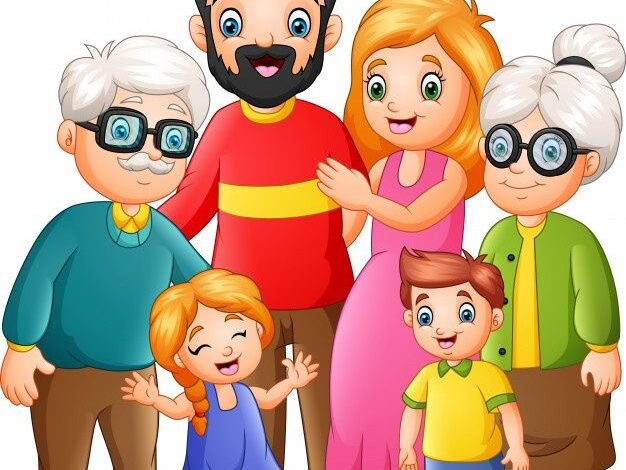Harmony in a Plural Society: Lessons From Family Life
Even though members of a family may have several traits in common, in every family, members are bound to differ in some way or the other. This is simply because each human being is unique.

By Rohail
Even though members of a family may have several traits in common, in every family, members are bound to differ in some way or the other. This is simply because each human being is unique.
 So, on some issues, the father might think one way, the mother in another, and the son in a third. Each of them will have their own views, their own behaviour patterns, their own personality types, their own likes and dislikes, their own strengths and weaknesses.
So, on some issues, the father might think one way, the mother in another, and the son in a third. Each of them will have their own views, their own behaviour patterns, their own personality types, their own likes and dislikes, their own strengths and weaknesses.
If members of a family want to get along well with one another and maintain the family unit intact, they have to learn to adjust with each other and accept each other’s differences, provided these are within mutually-accepted and ethical limits. A harmonious family is not one in which there are no differences whatsoever among its members—because, given human nature, such a thing is simply not possible. Rather, in a harmonious family, members recognise and accept each other’s legitimate differences and learn to adjust to them.
A positive approach to relating with differences is thus a major key to the family’s health and harmony. Members of the family need to make adjustments in their lifestyle to accommodate each other’s differences so that the family can continue to remain intact.
But members of a closely-knit family do not stop there. They also actively engage with each other and help each other grow. They express their love towards each other, through acts of kindness, even as they continue to differ on some things.
These same principles that apply to a single family consisting of different individuals also apply in the case a plural society, which is a collection of different social groups. A plural society can be likened to a large family, whose members consist of a number of different communities, defined on the basis of such factors as ethnicity, language and religion.
As in a family, members of the different social groups that make up a plural society must know how to get along well with each other even though they may differ on some issues, such as certain cultural traits or some elements of religious belief and practice. They must master the art of accepting and managing their acceptable differences. If they want to live happily with each other, they should recognise the fact of their inter-relatedness or interconnectedness with the other communities that are also part of the same society. And, like members of a well-knit family, they should be concerned not just about their welfare but also for the welfare of the other social groups in the society. They should engage in trying to be of service to one another.
Now, this sort of attitude requires a major evolution in people’s thinking—in their spiritual consciousness. They must grow in their recognition and understanding of the interconnectedness and the essential oneness that unites all human beings, and indeed all creatures—which is something that genuine spiritual masters who have appeared in various times and in different parts of the world have stressed. This is essential for members of a plural society to get along well despite the differences in terms of culture, ethnicity, religion etc. that might exist among them.
In other words, for members of different communities to live in harmony in a plural society, the development of our spiritual consciousness, growing in recognition of the oneness of all human beings, and, in fact, all life forms, is absolutely indispensable. And, since the development of our spiritual consciousness can be said to be the purpose of human life, living in authentic harmony with people from different social, religious and ethnic backgrounds and being genuinely concerned about their well-being can be said to be essential for fulfilling the reason or purpose for our having been sent to Earth to spend a limited time here before we are called back.




